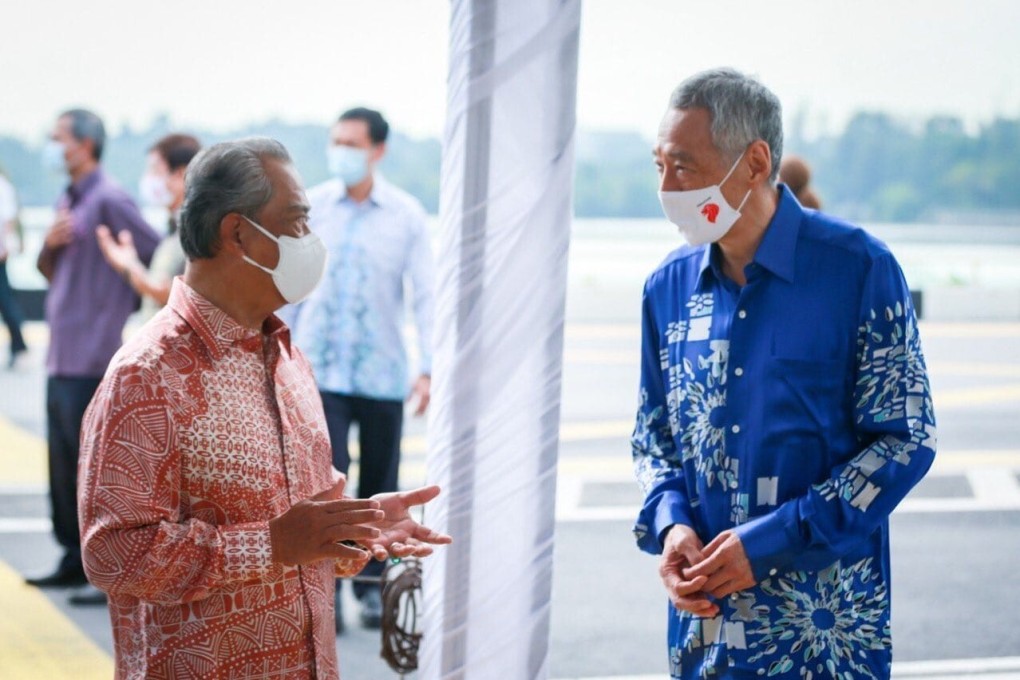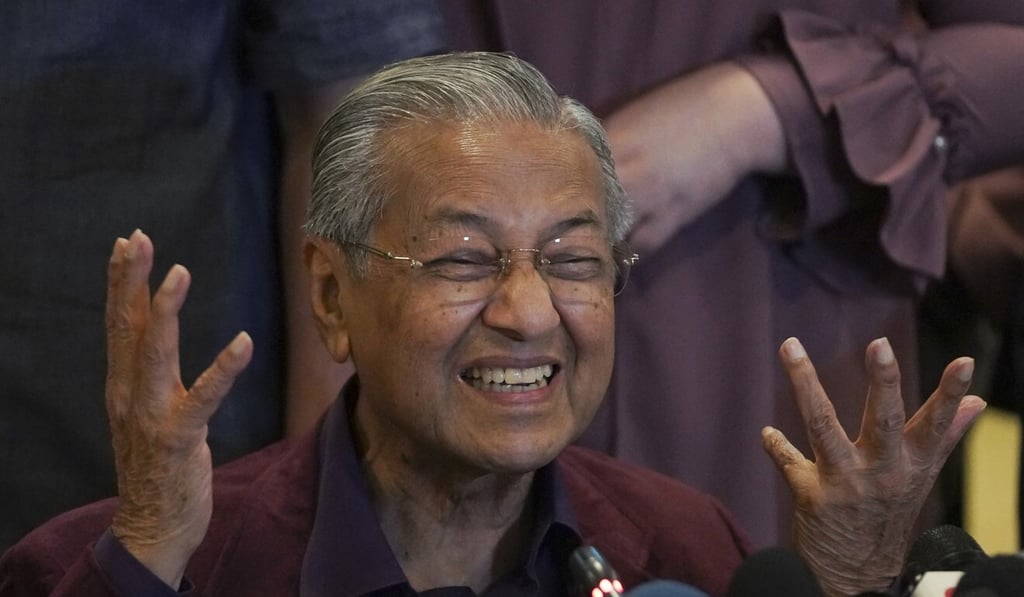Advertisement
Stalled Malaysia-Singapore metro link gets fresh push as ties thaw post-Mahathir
- Resumption of the US$880 million project comes as the countries’ bilateral ties have stabilised under Malaysia’s new prime minister, Muhyiddin Yassin
- Under the new pact, the RTS link is expected to begin operations by the end of 2026 with a depot in Malaysia, instead of Singapore as originally agreed
Reading Time:4 minutes
Why you can trust SCMP

Malaysia and Singapore on Thursday signed a fresh agreement to proceed with the stalled construction of a metro link between the two neighbours seen as crucial to easing traffic congestion at one of the world’s busiest border crossings.
The pact was marked with a ceremony attended by Singapore’s Prime Minister Lee Hsien Loong and his Malaysian counterpart Muhyiddin Yassin at the causeway between the countries – the first face-to-face meeting between the leaders since the start of the coronavirus pandemic.
Resumption of the US$880 million project comes as the countries’ bilateral ties have stabilised with Muhyiddin at the helm in Malaysia, following the March ousting of his predecessor Mahathir Mohamad.
Advertisement
Mahathir, a two-time prime minister known for his hawkish views of Singapore, ordered the suspension of the 4.4km Rapid Transit System (RTS) pending an internal review following the victory of his Pakatan Harapan alliance in 2018’s general election.

Advertisement
Along with the suspension of work on the RTS, work on a US$25 billion high-speed rail link between Kuala Lumpur and Singapore was also frozen.
Advertisement
Select Voice
Select Speed
1.00x